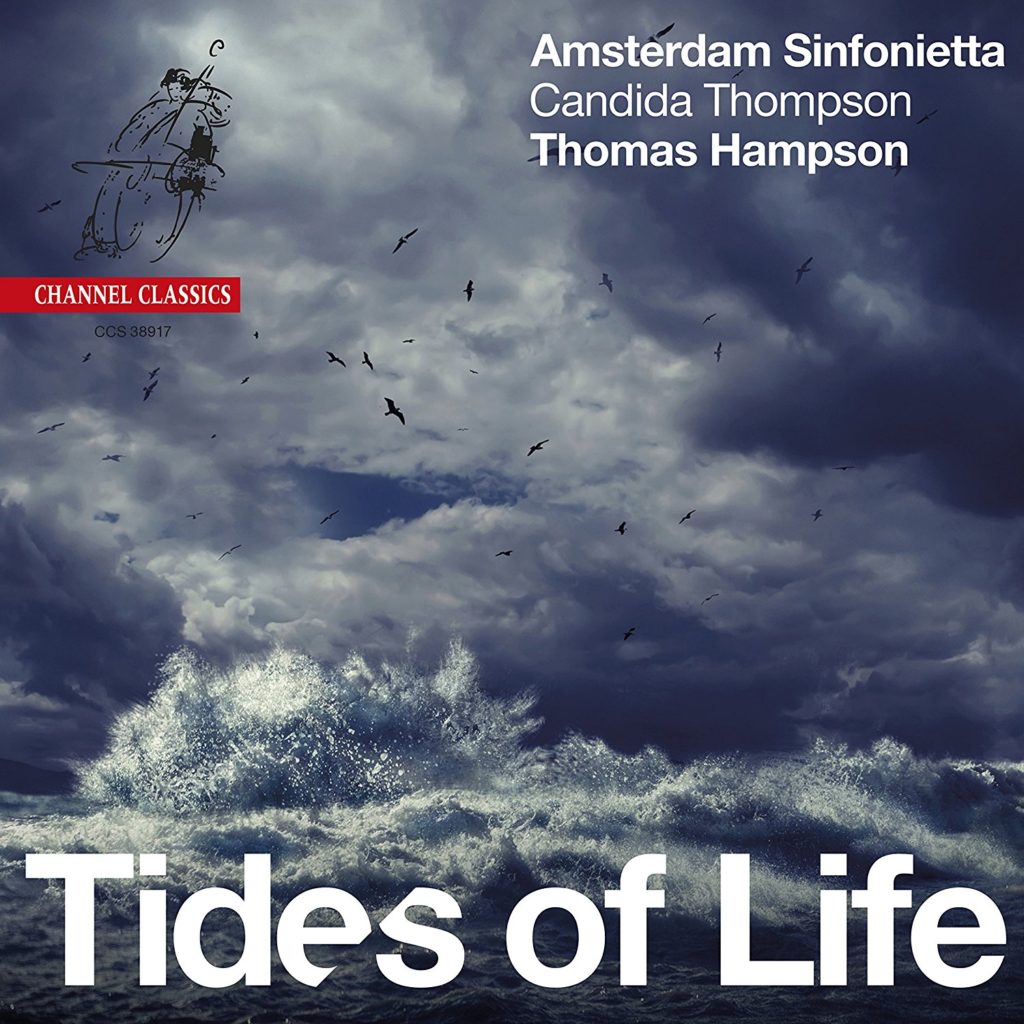In February 2014 the Amsterdam Sinfonietta and Thomas Hampson made a tour of twelve European concert halls performing a unique programme.
The heart of the programme consisted of new arrangements of songs by Johannes Brahms, Franz Schubert and Hugo Wolf. Amsterdam Sinfonietta commissioned the English composer David Matthews to arrange this song repertoire for string ensemble and baritone. These intimate compositions were performed in this new version for the first time in large-scale concert halls.The practice of orchestrating older, pre-existing songs became the vogue in the nineteenth century, coinciding with the blossoming of a whole new genre; the orchestral song. Composers such as Mahler, Wolf, Berlioz, Liszt and Strauss wrote songs for piano and voice, which they later emancipated by arranging them for voice and orchestra. A number of composers, including Brahms, Berlioz and later Weber and Reger, paid homage to their predecessors such as Schubert and Schumann by orchestrating their songs. On this recording only the version of Samuel Barber’s song Dover Beach remains close to the original. Composed for string quartet and baritone, the song is heard here in a version for baritone and string orchestra. This CD celebrates the years long collaboration between the Amsterdam Sinfonietta and Thomas Hampson in bringing the great song repertoire to new audiences in a new manner.
Reviews:
“It’s not only the singing of baritone Thomas Hampson, on top form, that makes this recital so enjoyable; it’s the affectionate new string arrangements, joyously played by the Amsterdam Sinfonietta – as leader Candida Thompson describes it, “a big string quartet” of two dozen players. All but one of the arrangements are by David Matthews, who adds texture and illumination to already radiant songs, refreshing these lilies without gilding them. Intertwining solo violins make the opening of Wolf’s song Anakreons Grab magical; squeaking strings conjure up the rodents in his Der Rattenfänger. Another highlight is Bob Zimmerman’s gossamer version of Schubert’s Ständchen (“Zögernd leise”), the echoes sung by a girls’ choir. Brahms’s Four Serious Songs find Matthews drawing on darker sonorities. Hampson, full of authority, ends on Barber’s masterly Dover Beach, which seems only to benefit from its quartet parts being lent the weight and security of a full string orchestra.”
Erica Jeal – The Guardian
“One of the loveliest discs to come our way this year”
Katherine Cooper – Presto Classical
Read Presto’s complete review of this disc here, and an exclusive interview with Thomas Hampson about this album here.
 Presto Disc of the Week, 17th February 2017
Presto Disc of the Week, 17th February 2017
 Presto Recordings of the Year, Finalist 2017
Presto Recordings of the Year, Finalist 2017
“Orchestral (re)arrangements of art songs may strike some listeners as a bore or an affront. But this Thomas Hampson program with string chamber orchestra features performers so expert, cohesive and spirited that they just might disarm such critics. It helps that the baritone, more than a quarter-century after his first solo recording, is in remarkably secure vocal estate, while his rapport with the songs of Schubert, Brahms, Wolf and Barber is as convincing as ever, sparked by a spirit of discovery. Before recording this program, Hampson and the Amsterdam Sinfonietta chamber orchestra took it on a twelve-city tour, and that experience gives their work a palpable lift.
The Sinfonietta’s twenty-odd strings perform accompaniments arranged by David Matthews that are tasteful and effective. Schubert’s “An die Leier” is almost predestined for all-string accompaniment, as it’s called “To My Lyre” and the text harps (so to speak) on “my strings,” which “resound only to the strains of love.” The players run with that message admirably here, managing the song’s stark contrasts and transitions more smoothly than some piano versions.
The string-orchestra arrangements work best in the predominantly legato songs, such as Wolf’s “Anakreons Grab,” or the second half of his “Auf einer Wanderung,” as its woozy hero blisses out on the beauties of nature. In the first three of Brahms’s Four Serious Songs, the lower strings are appropriate to the lugubrious Old Testament reminders of the curse of mortality. Twentieth-century arrangers have harnessed brass and winds for greater contrast in this Brahms series (as in Malcolm Sargent’s version with Kathleen Ferrier), but Hampson is compelling with strings alone. His version is especially unusual in its daringly fast tempo—ideal for the anguished text—in the contrasting segments of “Denn es gehet dem Menschen.”
In Wolf’s whirlwind “Der Ratten-fänger” (The Rat Catcher), a tour-de-force for Hampson, the string accompaniment has bite, recalling Beethoven’s “Grosse Fugue” …
The sweet-toned Netherlands Female Youth Choir, backed by subtle string chords, joins Hampson in a buoyant “Ständchen” (Serenade), D. 921, not to be confused—as the liner note does—with the posthumous and better-known “Ständchen,” to a different text.
Throughout, tempos are brisk, and the Amsterdam musicians shine. While the booklet is ambiguous about who’s conducting, photos from rehearsals show Hampson’s arm raised toward the players. He at least collaborated closely, and rewardingly, with the group’s artistic director, Candida Thompson.
Hampson’s singing has operatic thrust, color and resonance, suavely abetted by his diction and phrasing. Without straining, he seems to own the yearning, world-weary moods and the crowning outburst in Samuel Barber’s early setting of Matthew Arnold’s Dover Beach; he matches the power and subtlety achieved in his 1994 recording of the work (which boasted the refinement of the Emerson String Quartet) … Hampson remains an authentic master of song, with a passionate engagement that almost conceals his considerable art.”
David J. Baker – Opera News
